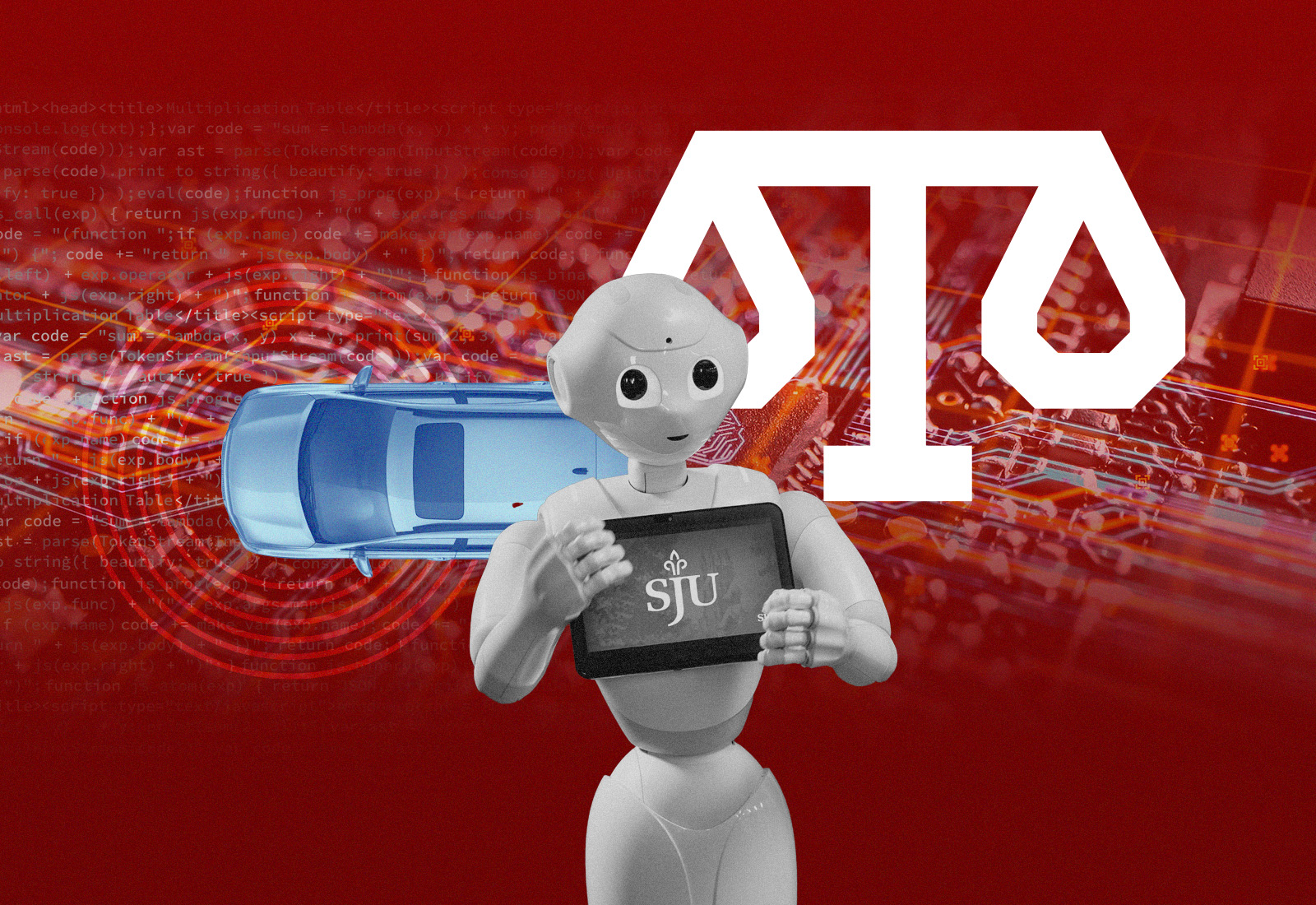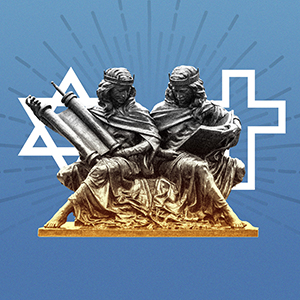Pedro Arrupe, S.J., Center for Business Ethics
Anything But Business as Usual

In 2018, a self-driving Uber vehicle struck and killed a pedestrian — the first such incident to ever occur with a fully autonomous vehicle. The accident lay bare the question: Who was at fault? The driver, the rideshare company, the carmaker, its engineers?
With the rapid development of artificial intelligence in the six years since the fatal crash, conversations around the ethics of AI have exploded. “What are the implications for the workforce and the potential loss of jobs? Is it going to create greater concentrations of power and wealth? Will people have AI friends or AI relationships, and what does that mean for society?” asks Michael Kates, PhD, assistant professor of philosophy and director of the Pedro Arrupe, S.J., Center for Business Ethics.
Engaging in topical conversations around ethical business decision-making is at the heart of the Pedro Arrupe, S.J., Center for Business Ethics, named after the 28th superior general of the Society of Jesus who dedicated his life to helping others. And while Fr. Arrupe may not have ever imagined discussions around the ethics of self-driving cars, his commitment to justice during the unthinkable — in his case, ministering to and caring for the victims of the Hiroshima atomic bomb — rings true today.
“He embodied a commitment to ethics and Jesuit values,” says Kates, “and the Arrupe Center was meant to carry forward that commitment on campus."
This past fall, the Center hosted a series of guest speakers on topics ranging from “The Ethical Challenges of Artificial Intelligence” to “A Debate on ESG Investing” and “The Ethics of Legal Representation.”
Kates explains that the Center’s goal is to give students a different type of business education — one that infuses ethics into the curriculum.
“Instead of just focusing on traditional business concerns like maximizing profit, we want students to realize that business also has ethical implications, and that when they go into the business world, they should keep those ethical implications firmly in mind,” says Kates.
In addition to hosting lectures, the Center sponsors faculty research through its fellows program, and also catalyzed the launch of the University’s SDG Dashboard, which measures institutional progress toward the United Nations’ 17 Sustainable Development Goals.
“The Arrupe Center wants students to think differently about business. It’s not enough for them to make a lot of money or have a successful career; they need to do those things with ethical integrity,” says Kates. “And the only way to get them to do that is by exposing them to the most cutting-edge thinking in business ethics.”
Instead of just focusing on traditional business concerns like maximizing profit, we want students to realize that business also has ethical implications, and that when they go into the business world, they should keep those ethical implications firmly in mind.”
Michael Kates, PhD
Assistant Professor of Philosophy and Director of the Pedro Arrupe, S.J., Center for Business Ethics


